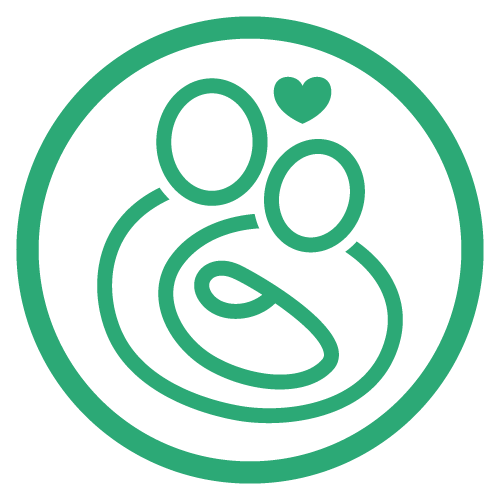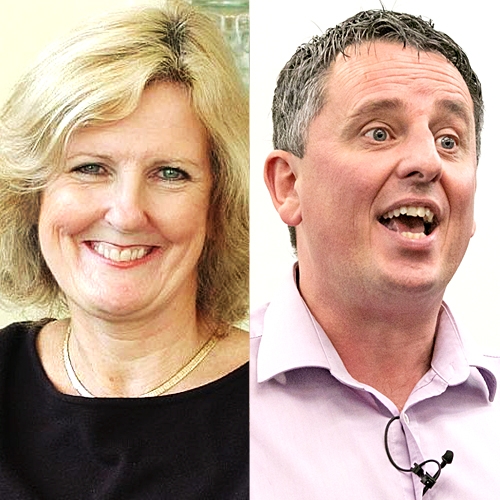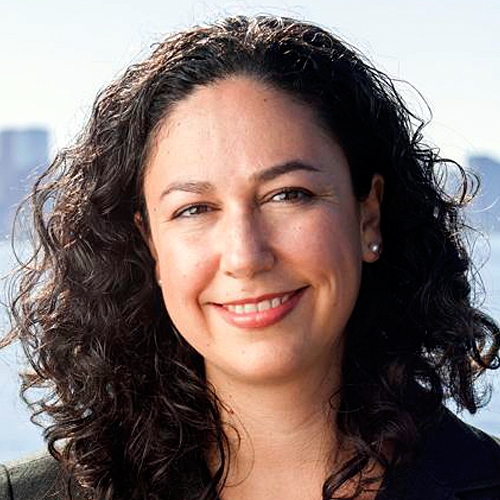
Mental Health in the Perinatal Period
Mental health of parents is crucial to the growth of a healthy child, healthy family and healthy society. Learn more about supporting the transition to parenthood in a way that promotes mental well-being during this vulnerable time. Our speakers are experts in the area of perinatal mental health and bring a wealth of knowledge and experience. With presentations on the identification, prevention and treatment of perinatal mental health issues, the importance of fathers’ mental health, the impact of postpartum depression on parenting, managing mental illness in pregnancy, anxiety in the perinatal period, and helping families heal from birth trauma, this package is your opportunity to immerse yourself in learning about mental health. Expanding your knowledge and skills provides a meaningful impact to the families in your care.


Jane has been interested and concerned with perinatal mental health(PMH) for over 35 years. During this time Jane has researched attitudes, ethnic beliefs and the mental health of fathers around this time. She is an honorary Lecturer on PMH at Swansea University and is a Past President of the International Marcé Society for Perinatal Mental Health. She is a currently on the Executive Board. She is also on several PMH committees, both nationally and internationally. Jane has written 2 books on PMH and is in the process of writing a third. She has written many peer reviewed articles and has been a speaker at national and international conferences. Jane is the Director of the PMH Training Company which, working in partnership with other experts in the field, including Mark Williams, delivers high quality training to health professionals and those practitioners concerned with families affected by perinatal mental disorders and illness.
Mark Williams is a keynote speaker, author and International campaigner. In 2004 he himself experienced depression and suffered in silence for years until a breakdown. He founded International Fathers Mental Health Day and #Howareyoudad campaign to make sure all parents are having support for the whole family.
Mark has spoken on television and radio stations around the world and works with Dr Jane Hanley who has both published articles on Fathers Mental Health together. Mark was awarded Inspirational father of the year and local hero at the Pride of Britain Awards in 2012 and was invited to meet The Royal Family on World Mental Health Day in 2016.
Objective 1: Perinatal Mental Health in Fathers;
Objective 2: How to engage with Fathers;
Objective 3: Why it is important to screen and support fathers.
The importance of fathers’ mental health is increasingly recognized as a significant factor in family life. As the construct of traditional society changes, it is becoming more commonplace for the father to be the primary carer of the infant. Should the mother suffer from a mental illness or disorder, then often the father is her main carer too. Studies have shown that if the father also suffers from mental ill health, this can have a significant impact on the relationship with the mother and have a detrimental effect on the development of the infant. Historically, men are conscious of their role as the provider and protector. The social expectations of men often preclude them from disclosing their feelings; therefore there is a tendency for them to confide their personal concerns to smaller networks of individuals, as they often fear they risk rejection should they admit to them publically. Studies have shown that if the complexities of their relationship with the partner are too much of an encumbrance, fathers often become distressed, frustrated and either withdraw into an activity or sport with which they feel more in control or resort to negative coping skills and misuse drugs and /or alcohol. They are more likely to ask for help when they experience suicide ideation. There are approximately 6,000 suicides annually in the UK.


Dr. Sheehan Fisher is an Assistant Professor and clinical psychologist at Northwestern University. His research career focuses on the effects of perinatal and subsequent parental mental health on infant/child health outcomes, with a specialization in the emerging field of father mental health. More specifically, he examines: 1) the biopsychosocial risk factors for parental psychopathology, 2) the impact of parental psychopathology on parenting behaviors and the family environment, and 3) the combined effect of the family environment on infant/child medical and emotional health outcomes. His aim is to reconceptualize parental mental health research to integrally involve both mothers and fathers to differentiate the etiology, course, and potential interactivity of paternal and maternal mental health and, in turn, the longitudinal associations with child medical and mental health. Dr. Fisher’s research dovetails with his perinatal clinical practice, including being the clinical director of the Fathers’ Mental Health Specialty Clinic. Ultimately, the goal is for his research plan is to optimize the health and effectiveness of the parental team to positively influence the child health trajectory starting from infancy.
Objective 1: Select appropriate screening/measurement tools for depression in mothers and fathers, and assess depression that may be expressed differently in both genders;
Objective 2: Determine the impact of mother and father’s depression and parenting behaviors on children;
Objective 3: Create treatment plans that are informed by the full family dynamic.
Maternal and paternal depression rates are elevated during the perinatal period compared to the normal population. Historically, fathers were excluded from perinatal mental health research but there is strong evidence that fathers have their own unique experiences that are more recently being considered within research. Mothers and fathers express and report depressive symptoms differently, which may influence detection of depression. Both parents’ mental health has an impact on parenting behaviors and the family functioning, which ultimately have an impact on child health. Perinatal clinical treatment would benefit from a comprehensive examination of the family dynamic to best provide treatment of perinatal depression and improve child health. Fathers can be utilized as an asset to mothers and clinicians to support maternal mental health. Future research is needed to optimize clinical treatment of perinatal mental illness that accounts for the full family dynamic.


Dr. Cindy-Lee Dennis is a Professor in the Lawrence S. Bloomberg Faculty of Nursing and the Faculty of Medicine, Department of Psychiatry at the University of Toronto. She holds a Canada Research Chair in Perinatal Community Health and was recently appointed the Women’s Health Research Chair at Li Ka Shing Knowledge Institute, St. Michael’s Hospital. She is currently the principal investigator of seven large, multi-site studies and is a co-investigator on twenty-four other research projects concerning maternal, paternal, and infant health outcomes. She holds over $23 million in funding from the Canadian Institutes of Health Research (CIHR) and has over 170 peer-review publications. She is the lead author on eight Cochrane systematic reviews and has provided over 150 invited presentations.
Objective 1: Delegates will be able to define what perinatal mental health is, current prevalence rates and consequences.
Objective 2: Delegates will be able to clearly describe strategies for the identification of depression and anxiety across the perinatal period.
Objective 3: Delegates will be able to clearly describe interventions for perinatal mental prevention and treatment.
Perinatal mental health is a long-standing important public health issue worldwide with well documented negative effects on children, including delayed cognitive and language development, higher rates of behavioral problems, insecure or disorganized attachment, lower school-leaving grades and higher rates of depression at 16 to 18 years of age. This presentation will discuss the prevalence of perinatal mental health issues including depression, anxiety, and comorbid depression and anxiety. Risk factors will be outlined and consequences highlighted. Good principle for screening will be discussed to ensure accurate identification and follow-up. Preventive strategies based on best evidence will be presented and a and innovative treatment option will be discussed that is based on maternal preference. The use of technology will be reviewed to increase access and clinical utility and a new approach to the management of perinatal mental health will be presented.


Jayashri KULKARNI commenced her appointment as Professor of Psychiatry, The Alfred and Monash University in 2002. She directs a large psychiatric research group, the Monash Alfred Psychiatry Research Centre (MAPrc), with approximately 150 staff and students. The Centre is dedicated to discovering new treatments, new understanding and new services for people with a range of mental illnesses.
Jayashri Kulkarni completed her MBBS degree in 1981 at Monash University and worked mainly in Emergency Medicine before deciding to specialise in Psychiatry. She became a Fellow of the Royal Australian and New Zealand College of Psychiatrists in 1989 and was awarded a PhD from Monash University in 1997 for her thesis “Women and Psychosis”. Jayashri has pioneered the novel use of estrogen as a treatment for schizophrenia and is internationally acknowledged as a leader in the field of reproductive hormones and their impact on mental health. An expert in Women’s Mental Health, Jayashri was elected the President of the International Association of Women’s Mental Health, a role she commenced in 2017.
Objective 1: Identify special issues for pregnant women with pre-existing psychosis;
Objective 2: Understand more about antipsychotic medication use in pregnancy;
Objective 3: Understand more about an integrated mental – health system approach for pregnant women with mental ill health.
Women suffering major mental illness such as schizophrenia or bipolar affective disorder face multiple challenges in pregnancy. The need to balance maternal mental health with fetal development is a crucial challenge. The best information available on the safety profile of antipsychotic, antidepressant and other medications is needed, but this is often difficult to access, or is contradictory. This presentation will include data on medication safety as well as associated other management aspects for the woman with special needs due to mental illness. Monitoring and treatment of gestational diabetes, infant drug withdrawal syndromes, and mental health support for the woman will be discussed.


Dr. Melanie Badali is a Registered Psychologist in British Columbia, Canada with over 20 years of experience working as a clinician, researcher, and instructor in the field of clinical psychology.
Dr. Badali currently provides psychological assessment and treatment services at the North Shore Stress and Anxiety Clinic, where she is on the Perinatal Services Team. She is certified in the practice of Cognitive Behaviour Therapy (CBT) by the Canadian Association of Cognitive and Behavioural Therapies and works with the organization to advance training, knowledge and accreditation in CBT. She has experience working in a variety of clinical settings including inpatient and outpatient, public and private.
She is also an Associate Faculty member at Yorkville University, where she teaches in the Master's of Counselling Psychology Program.
As a Board Director for Anxiety Canada, a non-profit organization that increases awareness, promotes education and provides resources for people dealing with anxiety, her role includes advocacy, research, knowledge translation and speaking to the media.
Dr. Badali is actively involved in research, training and writing. She enjoys creating psychoeducational resources such as the Canadian Psychological Association’s new factsheet on Perinatal Anxiety and is currently working on the third edition of the book, “Match Made on Earth”.
Objective 1: Differentiate “normal” anxiety from anxiety disorders;
Objective 2: Identify the anxiety and related disorders that are most likely to occur during pregnancy and postpartum;
Objective 3: Name three types of interventions that can help mothers with perinatal anxiety and related disorders.
The perinatal period is a time of great transition and uncertainty. It is normal for women to experience increased stress and anxiety as they adjust to changes in their body and life. But experiencing anxiety is not the same as having an anxiety disorder. Anxiety disorders are associated with intense distress and significant impairment in functioning (which can include problems caring for self and baby). Anxiety Disorders are estimated to occur in 9% to 22% of women during pregnancy and 11% to 21% of women postpartum. The good news is that Anxiety Disorders are treatable. Psychotherapies such as Cognitive Behavioural Therapy (CBT) are effective and have no known contraindications for pregnant and breastfeeding women. The goal of this presentation is to help front line health care professionals recognize problematic anxiety during the perinatal period and identify evidence-based interventions.


Kate White is and award-winning craniosacral and massage therapist, prenatal and early childhood educator. She is trained in somatic therapies, prenatal and perinatal health, lactation, brain development, infant mental health, and has specialized in mother-baby dyad care using somatic prevention and trauma healing approaches for nearly 20 years. She is a mother of two children, holds a BA and MA in Communication, is a Registered Craniosacral Therapist in the Biodynamic Craniosacral method and a Somatic Experiencing® Practitioner. Her work combines somatic therapy with brain development to help give families with babies and small children the best possible start. She is Founding Director of Education for the Association for Prenatal and Perinatal Psychology and Health from 2013 – 2018 where she managed a large online educational program for professionals. She currently co-directs this program, administering an online program for parents and parent professionals, runs a private practice and offers her own seminars through the Center for Prenatal and Perinatal Programs, ppncenter.com.
Topic: Best Practices in Prenatal and Perinatal Psychology and Somatic Health for Optimal Birth Outcomes - [View Abstract]
Topic: Integration of the Science of Safety and Resilience into Perinatal Care: A 5 Step Process - [View Abstract]
Topic: The Science of Safety and Trauma Specific Recognition to Improve Birth Outcomes: What Does It Mean for the Midwife? - [View Abstract]
Topic: “It Was Right but so Wrong:” Helping Families Make Sense of Difficult Births with Trauma Sensitive and Prenatal and Perinatal Healing Approaches - [View Abstract]
Objective 1: Name identifying factors of birth trauma;
Objective 2: Identify different states in the body that are hallmarks of traumatic response, especially in women and babies;
Objective 3: Understand trauma sensitive and somatic healing approaches to supporting families who have had difficult births.
Recent reports suggest that the percentage of mothers who experience birth trauma is much higher than previously realized. Those of us who support mothers, babies and birth know that if a mother has an overwhelming birth, it affects her perception of herself, her partner and her baby.Many women carry memories of difficult births their whole lives. This presentation will outline trauma sensitive approaches to helping families heal from difficult births using somatic or body-oriented practices as a base. Recent trends in trauma resolution will be discussed, including trauma informed care in the perinatal period, and polyvagal theory and its application for birth. A new model of obstetric care will be introduced that includes somatic trauma resolution skills, especially what it looks like to weave these tools into medical or private therapeutic practice. It will also include the baby’s experiences to complete a package of holistic trauma sensitive care for the birthing family.
Accreditation
CERPs - Continuing Education Recognition Points GOLD Conferences has been designated as a Long Term Provider of CERPs by the IBLCE--Approval #CLT114-07. This program is approved for 6 CERPs (6 R-CERPs)
Tags / Categories
(IBCLC) Pharmacology and Toxicology, (IBCLC) Psychology, Sociology, and Anthropology, Birth Trauma, Fathers in Perinatal Care, Perinatal Mood and Anxiety Disorders, Postpartum Depression
How much time do I have to view the presentations?
- The viewing time will be specified for each product. When you purchase multiple items in your cart, the viewing time becomes CUMULATIVE. Ex. Lecture 1= 2 weeks and Lecture Pack 2 = 4 Weeks, you will have a total of 6 weeks viewing time for ALL the presentations made in that purchase.
- Time for viewing the talks begins once you purchase the product. For Live Webinars & Symposiums, the viewing period begins from when the live event takes place. Presentations can be accessed 24/7 and can be viewed as many times as you like during the viewing period.
What are bundled lectures?
- Presentations may be available individually or via a bundled package. Bundled lectures are a set of lectures that have been put together based on a specific category or topic. Some lectures will be available in both individual and lecture form, whereas others will be available only via a bundled lecture pack.
Will there be Handouts?
- YES! Each lecture comes with a PDF handout provided by the Speaker.
Some lectures include a Q&A, what does that mean?
- During our online conferences, presentations that occur live are also followed by a short 15 minute Question & Answer Session. The Speaker addresses questions that were posted by Delegates during the presentation. We include the recording of these Q&A Sessions as a bonus for you.
How can I receive a Certificate?
- If this presentation offers a certificate, once you are done viewing the lecture or the lectures within a bundle, submit your attendance record in order to be able to download your certificate. You'll be able to see which credits are offered for the lecture by hovering over the "Credits Available" link within the "Speakers & Topics" tab.
Professionals that selected this package also viewed

|
|

|











